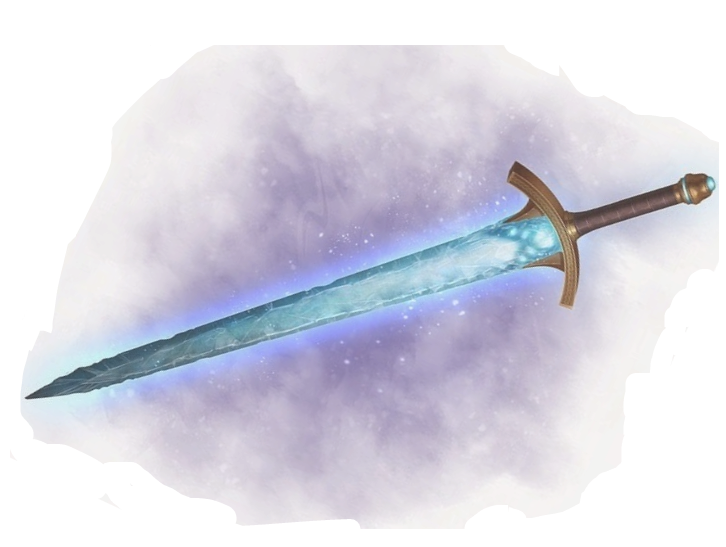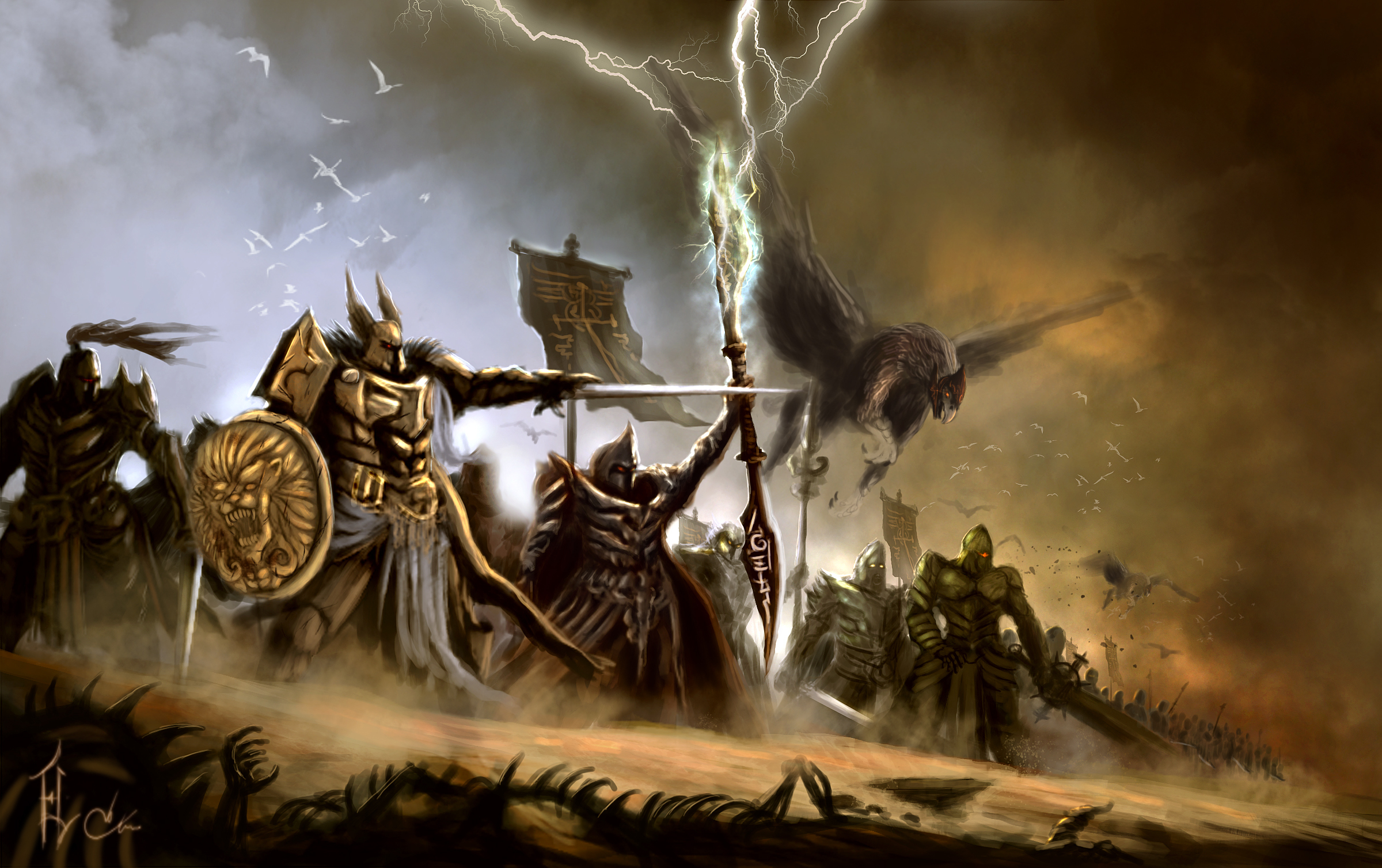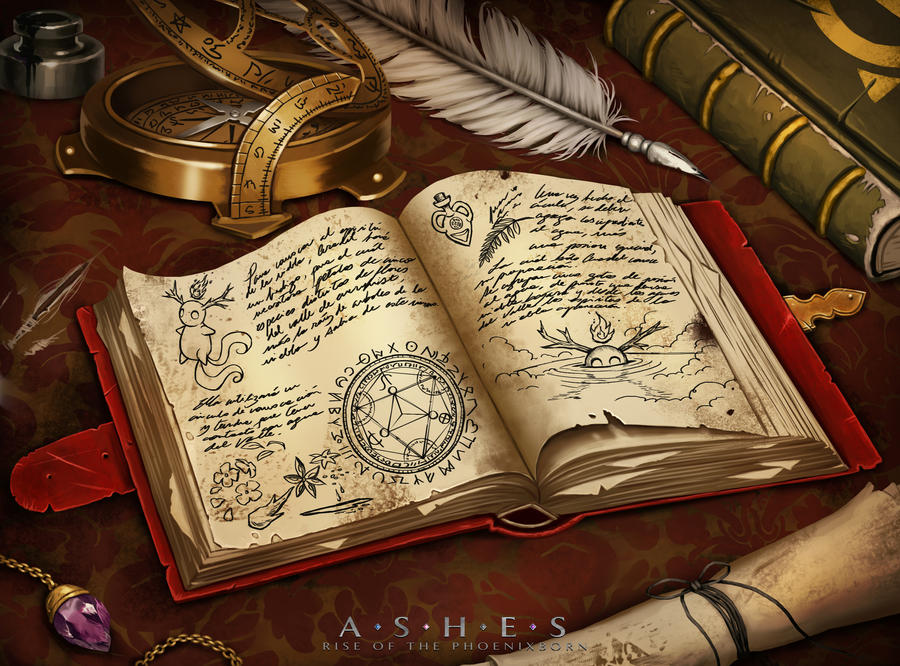Warmage
An orc at the head of a legion of soldiers raises her spear high, gives a mighty shout, and charges into battle with a surge of magic quickening her stride, her followers pouring after her toward the enemy in a riot of enthusiastic howling.
A dwarf slams his shield into the face of his pirate foe, knocking it to the ground, then with a swing of his axe, hurls a bolt of ice at another several feet away. The ice clings bitingly to her armor for a moment before vanishing, leaving a weave of paralytic magic in its place that holds the second pirate immobile.
A human surrounded by a swarm of wererats stabs his greatsword into the ground, summoning a fan of flames that sears his enemies into retreat, then leaps forward and swings his blade, still wreathed in fiery power, deep into the armored chest of their leader.
These heroes are warmages, fierce combatants who study magic for its destructive capability and the utility it can bring in battle and adventure. They avoid the unreliable complexities of high-level spells which can be used up or wasted, and focus instead on coaxing unmatched performance from a wide breadth of inexhaustible cantrips, augmented by vigorous physical training in the mundane tools of war.
Always Good, not Sometimes Better
For most people, magic is about great power — to level houses, enchant dragons, regenerate lost limbs, dissolve entire bodies into nothingness or even step between worlds. But such power is fickle. It comes and is gone, exhausting itself the moment it is used, leaving the caster weak and vulnerable. For those who seek a more reliable sort of magic, a power that is never lost or diminshed and always to hand, a different path must be sought.
It is these seekers who become warmages, learning to augment magic at its most basic form until a simple cantrip has all the power of a wizard's fireball... and all the reliability of a soldier's sword.
Studied and Steady
Becoming a warmage requires extensive training. For most, learning to harness and channel the breadth of magical power they rely on can take several years. Even those for whom the magic itself comes naturally must spend hours on the practice fields for long periods of study, learning to master body and blade and to integrate martial routine and magical prowess. Almost all warmages are thus the graduates of an apprenticeship, military order or war college, and are apt to retain traces of that discipline in their fitness routines or the way they care for their equipment. A warmage maintains both body and mind with equal attention, knowing that, like weapon and armor, both have their essential purpose in battle and only a fool neglects either.
Creating a Warmage
As you make your warmage character, think about who trained you, whether you were found by a wandering adventurer in search of a squire or if you were singled out for special instruction in a military holy order or a lord's militia. Have you left your teachers or comrades on a mission, or were you driven out or expelled?
Consider also why you chose the path of the warmage, rather than a more accessible career as a fighter or a more explosive one as a master wizard. Perhaps you were a warrior who felt a call to something more powerful than a sword, or a born sorceror with a love of the blade who'd rather bend your birthright to force of arms than more esoteric powers. You might never have intended to learn to fight at all, but been forced by circumstance to develop combat skills you didn't want, or pigeonholed by the limited magical training available to you.
Quick Build
You can make a warmage quickly by following these suggestions. First make Wisdom your highest ability score, followed by Dexterity. Second, choose the Soldier background. Third, select the Sage Arcane style and the cantrips arvad's expulsion, blisterwind, ray of frost, shocking grasp, and quickfoot, along with guidance and resistance.


The Warmage
| Level | Proficiency Bonus | Features | Cantrips Known |
|---|---|---|---|
| 1st | +2 | Arcane Style, Cantrips, Warmage Edge | 5 |
| 2nd | +2 | Arcane Command (one use) | 5 |
| 3rd | +2 | War Magic Focus | 5 |
| 4th | +2 | Ability Score Improvement | 5 |
| 5th | +3 | Pervasive Cantrips | 6 |
| 6th | +3 | Point Blank Magic | 6 |
| 7th | +3 | War Magic Focus feature | 6 |
| 8th | +3 | Ability Score Improvement | 6 |
| 9th | +4 | Reactive Warding (one use) | 7 |
| 10th | +4 | War Magic Focus feature | 7 |
| 11th | +4 | Overwhelming Cantrips | 7 |
| 12th | +4 | Ability Score Improvement | 7 |
| 13th | +5 | Reactive Warding (two uses) | 8 |
| 14th | +5 | Ability Score Improvement | 8 |
| 15th | +5 | War Magic Focus feature | 8 |
| 16th | +5 | Ability Score Improvement | 8 |
| 17th | +6 | Arcane Command (two uses), Reactive Warding (three uses) | 9 |
| 18th | +6 | War Magic Focus feature | 9 |
| 19th | +6 | Ability Score Improvement | 9 |
| 20th | +6 | Arcane Law | 9 |
Class Features
As a warmage, you gain the following class features.
Hit Points
Hit Dice: 1d10 per warmage level Hit Points at 1st Level: 10 + your Constitution modifier Hit Points at Higher Levels: 1d10 (or 6) + your Constitution modifier per alchemist level after 1st
Proficiencies
Armor: Light armor, medium armor, shields Weapons: All simple weapons and up to four martial weapons of your choice Tools: Choose siege weapons or any one vehicle proficiency, or alchemy kits Saving Throws: Constitution
Skills: Choose three from Acrobatics, Animal Handling, Athletics, Arcana, History, Insight, Intimidation, Perception, and Tactics & Logistics Equipment: You start with the following equipment, in addition to the equipment granted by your background:
– (a) a light armor and a shield or (b) a medium armor
– (a) a ranged weapon and 20 pieces of ammunition or (b) two light weapons
– (a) a two-handed melee weapon or (b) a one-handed weapon and a dagger
– (a) an adventurer's pack or (b) an explorer's pack
Arcane Style
You gain access to your magic in a distinct way, through either research and study, insight and prayer, or innate magical force. Choose one of the following options to define your warmage spellcasting:
Scholar
Your spellcasting attribute is Intelligence, and you are proficient in Intelligence saves. You have a ritual book, which initially contains two 1st-level ritual spells of your choice. So long as you have your ritual book on hand, you may cast the spells in it as rituals, using your normal spellcasting attribute. You may attempt to copy other ritual spells into your ritual book as you discover them, provided their level doesn't exceed half your character level.
Sage
Your spellcasting attribute is Wisdom, and you are proficient in Wisdom saves. In addition to your normal cantrips known, you also know any two cleric or druid cantrips of your choice.
Savant
Your spellcasting attribute is Charisma, and you are proficient in Charisma saves. When you roll dice to determine the effect of a cantrip, you use a die one step larger than normal. For cantrips that normally use a d12, roll d8+d6 with this feature.
Cantrips
You have the ability to use magic, but only in its most straightforward form. You know five cantrips of your choice from the Warmage list. You learn additional cantrips of your choice at higher levels, as shown in the Cantrips Known column of the Warmage table. Your spellcasting attribute for these cantrips is determined by your Arcane Style. You may use any weapon you're proficient with as an arcane focus, and may also use such a weapon to perform any somatic components your cantrips might require.
Warmage Edge
As a warmage, whenever you roll to determine the result of a cantrip, you may add a bonus to the result equal to your proficiency bonus. This bonus doesn't stack with similar abilities that add static bonuses, like a cleric's Potent Cantrips or a warlock's Agonizing Blast, and can only apply to any particular creature once per turn.
Arcane Command
Starting at 2nd level, you can bind your body and your magic to your will for a short time, magnifying your skill and power wherever you apply it. On your turn, you may invoke Arcane Command, doubling your proficiency bonus until the beginning of your next turn.
Once you use this feature, you must finish a short or long rest before you can use it again. Starting at 17th level, you can use it twice before a rest, though it does not stack with itself and thus can only be used once on any given round.
Commanding Expertise
5th edition limits proficiency to 2x base, meaning that if a warmage gained access to Expertise, those features would simply overlap, significantly neutering a central feature of the class. If you find this concerning, try using the 3e rule that "two doublings is a tripling," allowing the warmage to use triple proficiency for Expertise skills during Arcane Command, instead of doubled or quadrupled proficiency.
War Magic Focus
At third level, you choose a specific area of study to develop your magic through, such as greater martial skill or sophisticated manipulation of your cantrips. These choices are detailed at the end of the class description. The focus you choose grants you features at 3rd level and again at 7th, 10th, 15th and 18th level.
Ability Score Improvement
When you reach 4th level, and again at 6th, 8th, 12th, 14th, 16th, and 19th level, you can increase one ability score of your choice by 2, or increase two by 1 each (to the normal limit of 20).
Pervasive Cantrips
Beginning at 5th level, when you would ordinarily deal no damage with a cantrip due to its attack roll missing or your target making a successful saving throw, you instead deal half damage.
Point Blank Magic
At 6th level, while you have a readied weapon that you are proficient with, you don't suffer disadvantage for attacking a target within 5 feet of you with a ranged cantrip, and you have advantage on attempts to maintain concentration on cantrips.
Reactive Warding
Starting at 9th level, when an enemy hits you with a ranged or melee attack, you can instinctively create a magical shield to protect yourself. Make a Constitution saving throw, and subtract the result from the damage your enemy deals (to a minimum of 0). Once you use this feature, you can't use it again until you complete a long or short rest. You can use this feature twice between rests starting at 13th level and three times between rests starting at 17th level.
Overwhelming Cantrips
Beginning at 11th level, when you roll damage for one of your cantrips, roll one extra die and add it to the result.
Arcane Law
At 20th level, when you are under the effect of Arcane Command and make a roll that you add your proficiency bonus to (such as an ability check or a cantrip damage roll), you may simply choose any possible result of that roll rather than actually rolling. Attack rolls made using this feature are never critical hits, and you can do this only once per use of Arcane Command.
War Magic Focus
Even the simplest magic is not beyond specialization and individual expression. Every warmage develops their magical talents with a specific focus, from the straightforward power-seeking of the Archon to the specialized martial skill of the Blade Mage.
Archon
For some, the art of the warmage is a straightforward one. These practitioners of the Archon's path hone their body, mind and magic into a pillar of strength, making themselves a reliable, resilient source of consistently powerful magic.
Reliable Casting
As an Archon, whenever you roll to determine the effect of a cantrip, you may reroll any 1s or 2s and take the new result.
Magic Affinity
Beginning at 7th level, whenever you are subject to a beneficial effect that requires a die roll (such as a healing spell or a sorceror's Bend Luck), roll an extra die and discard a die result of your choosing.
Battle-Tested
Beginning at 10th level, when you roll with disadvantage on a Strength, Dexterity, or Constitution check, you may roll 1d8 and add it to the lower d20 result. This d8 is not modified by your Magic Affinity feature.
Spellshield
Starting at 15th level, your experience with combat magic gives you advantage on all saves against spells or magical damage.
Critical Edge
Beginning at 18th level, when you score a critical hit with a cantrip, you double the effect of your Warmage Edge on that cantrip as well.


Blade Mage
For some warmages, magic and martial skill are so deeply intertwined that they might as well be the same. A bit of a misnomer, these "blade mages" could be more accurately called spear mages, bow mages, axe mages or dagger mages depending on their weapon of choice; what each has in common with the others is that their skill at arms and arcana grow in perfect concert, each seamlessly supporting the other to create a deadly whole.
Bonus Proficiencies
Upon selecting this focus, you gain proficiency in heavy armor, and with all martial weapons. You also gain proficiency in one of fletcher's tools, leatherworker's tools, or smith's tools.
Bonded Weapon
At third level, when you select this focus, you may bond with up to two weapons (melee, ranged, manufactured or natural). You form a bond by spending an hour moving through martial forms and focusing your magic through the weapon; this may be done during a short rest. Attempting to bond with a third weapon breaks one of your existing bonds (your choice which).
Your bonded weapons cannot be disarmed from you unless you are incapacitated, and if you lose hold of one, you may summon it to your hand at any time as a bonus action so long as it is on the same plane as you. A bonded weapon also becomes magical, if it is not already, and you may use your spellcasting attribute in place of your Strength or Dexterity score to determine its attack bonus (but not any damage bonus).
Follow-Through
As a blade mage, you learn to interweave magical and martial skill into a seamless whole. When you use your action to cast a cantrip, you may use your bonus action to make a grapple, disarm or shove attempt or a quick, glancing weapon attack that deals 1d4 base damage (regardless of the weapon you use).
Martial Focus
Starting at 7th level, you may attack twice, instead of once, when you use the Attack action on your turn. You may also use your normal weapon damage when using Follow-Through, provided your weapon attack is made with your bonded weapon. If you choose to disarm, grapple or shove instead, your target has disadvantage to resist you.
Mage Sight
At 10th level and above, you can use your magical skill to extend your attention and perception to an incredible degree. As a bonus action, you gain darkvision with a range of 60 feet (or the range of your existing darkvision increases by 60 feet) for ten minutes, and you have advantage on all Perception and Investigation checks (or any similar tests of mental acuity) while this effect lasts. Once you use this ability, you must complete a short or long rest in order to use it again.
Imbued Blade
Beginning at 15th level, when you cast a cantrip that deals damage, its magic permeates and clings to your bonded weapon. Until the end of your next turn, any successful attack you make with your bonded weapon deals 1d8 bonus damage of the same type as the cantrip. You can't imbue your weapon with the energy of more than one cantrip at once; casting a new damaging cantrip while your blade is still imbued replaces the current effect.
Mirrorguard
When you reach 18th level, your mastery of combat magic allows you to turn even the most powerful enemy spells to your own profit. When you are the target of a single-target spell or magical effect, you may use your reaction to reflect it against its caster. You suffer no damage or adverse effects from the spell, as though it had never been cast, and the creature that cast the spell is affected as though it had cast the spell on itself, having to save against its own DC or roll an attack against itself and resolve the effects normally.
Once you use this ability, you must complete a short or long rest in order to use it again.




Weave Master
Not every warmage seeks to increase only the power of their magic; some seek to master all the complexity of the Weave as well. As a weave master, you eschew high-level spells not just because of their limits, but because they are unnecessary. With your command of the very essence of magic, even a simple cantrip can be reshaped and enhanced to produce any sophisticated effect you desire.
Arcane Augmentation
When you choose this focus, you learn unique ways to shape your magic called augmentations, which are detailed below. You start knowing two augmentations of your choice, which you may use to modify any applicable cantrip that you cast. You must choose whether to use an augmentation before you cast a cantrip, and each use of an augmentation generates a certain amount of arcane feedback, as indicated in its description. Feedback decays over time, with one point fading at the end of each of your turns.
Arcane feedback inhibits your ability to use magic, and you cannot safely accumulate more than a certain amount at once, as indicated on the Weave Master table; if you generate feedback greater than your current cap, you immediately take 3d6 damage per point in excess. This damage has no type and can't be resisted or reduced in any way, and once you take this damage you can't do anything that generates more feedback until your current feedback is reduced to 0. You also cannot use more than one augmentation on the same cantrip, unless indicated otherwise in the augmentation's description.
Each three warmage levels, you learn one new augmentation, as indicated on the Weave Master table. Any time you gain a new warmage level, you may also replace one known augmentation with another.
Weavewarping
Starting at 7th level, when an enemy attempts to cast a spell while within 5 feet of you, you can use your mastery of the Weave to interfere with the cast. As a reaction, force the caster to make a Concentration save against your spell save DC. On a failure, your target wastes its action and the spell is not cast. If the target rolls a 1 on its save, you can instead cause the spell to backfire, dealing force damage to its caster equal to (1d6 × the spell's slot level + your Warmage Edge).
| Level | Augmentations Known | Feedback Cap |
|---|---|---|
| 3 | 2 | 2 |
| 4 | 2 | 2 |
| 5 | 2 | 3 |
| 6 | 3 | 3 |
| 7 | 3 | 3 |
| 8 | 3 | 3 |
| 9 | 4 | 4 |
| 10 | 4 | 4 |
| 11 | 4 | 4 |
| 12 | 5 | 4 |
| 13 | 5 | 5 |
| 14 | 5 | 5 |
| 15 | 6 | 5 |
| 16 | 6 | 5 |
| 17 | 6 | 6 |
| 18 | 7 | 6 |
| 19 | 7 | 6 |
| 20 | 7 | 6 |
Lingering Ward
Starting at 10th level, whenever you use your Reactive Warding feature, you may manipulate the protective aura to partially linger around you, granting you resistance to the damage type of the attack that triggered it (including the damage dealt by the triggering attack). This effect lasts until the beginning of your next turn, unless you choose to extend it; each additional round you extend it generates 1 arcane feedback, plus 1 cumulative extra feedback per round (so 1 for the first round, 2 for the second, 3 for the third, etc).
Interwoven Arcana
Beginning at 15th level, you may combine multiple augmentations on the same cantrip, though you still may not safely exceed your maximum feedback.
Arcane Sight
Once you reach 18th level, you are completely attuned to the warps and disturbances of magic in the world. You are automatically aware of the presence, location and school (where applicable) of every magical effect, item, or creature within 30' of you. This ability is considered a divination effect comparable to true seeing, when relevant.


Augmentations
You may not learn an augmentation if the feedback it generates would exceed your current cap.
Accelerating Weave: 1 feedback. You twist some of your cantrip's power into augmenting your body, granting yourself a 10 foot bonus to your speed until the beginning of your next turn.
Deflecting Weave: 1 feedback. You shape excess power from your cantrip into a protective aura, granting yourself a +2 bonus to AC and Dexterity saves until the beginning of your next turn. This protection doesn't stack with the benefit provided by an equipped shield. Using this augmentation does not prevent you from using other augmentations on the same cantrip.
Elemental Alteration: 1 feedback. You pull your cantrip's power from an unusual primal source, changing its damage type to your choice of acid, cold, fire, lightning or thunder. Using this augmentation does not prevent you from using other augmentations on the same cantrip.
Excruciating Web: 2 feedback. You augment a cantrip to cause extraordinary pain to its target. If your attack hits or the target fails its save, your cantrip deals 1d4 bonus psychic damage.
You can increase the effect of this augmentation, adding additional d4 damage dice for 1 additional feedback each if the cantrip hits a single target, or 2 feedback per d4 if the cantrip hits multiple targets.
Obscuring Weave: 2 feedback. Your cantrip requires no verbal, somatic, or inexpensive material components, and observers cannot tell that you have cast it except by its results.
Spell Expansion: 2 feedback. You cause a spell that normally targets a single creature to also bloom into a broad explosion of magic. Whether or not your cantrip hits, any creature within 10 feet of its target is affected by a reduced version of the cantrip; instead of rolling to determine the effect on these creatures, use only your Warmage Edge to determine the result. If the cantrip deals damage, these extra targets may attempt a Dexterity save for half damage.
You can increase the radius of this effect when you use it, but each 5 additional feet generate 1 additional feedback.
Spell Extension: 2 feedback. You twist your magic to displace a spell along the Weave and bypass any intervening space, increasing the range of your cantrip by 50% (or to 60 feet, if it normally has a range of Touch) and ignoring up to 1 source of cover currently benefitting your target.
Weakening Web: 2 feedback. You create a disruptive resonance in your cantrip, causing it to unbalance and distract its target. If your attack hits or if your target fails its saving throw, it has disadvantage on all attack rolls until the beginning of your next turn.
If your cantrip hits multiple creatures, this augmentation generates 2 additional feedback for each creature targeted.
Binding Weave: 3 feedback. You imbue your cantrip with lingering bonds of force magic. If your attack hits or if your target fails its saving throw, it gains the grappled condition, and at the beginning of each of its turns, it must attempt a Strength save against your spell save DC. On a success, it is freed from your magic; on a failure, it is restrained until its next attempt.
If your cantrip hits multiple creatures, this augmentation generates 3 additional feedback for each creature targeted.
Lingering Power: 3 feedback. You cause your magic to cling to its target. If your cantrip hits or its target fails its saving throw, the cantrip repeats its effects at the beginning of your next turn, though any numerical effect is halved and no augmentations apply.
If your cantrip hits multiple creatures, this augmentation generates 3 additional feedback for each creature targeted.
Magnetic Weave: 3 feedback. You instill your cantrip with a strong magical pull towards you. If your cantrip hits or if its target fails its saving throw, until the beginning of your next turn, your target cannot increase its distance from you without succeeding on a Strength saving throw.
If your cantrip hits multiple creatures, this augmentation generates 1 additional feedback for each creature targeted.
Repelling Weave: 3 feedback. You imbue your cantrip with a protective, repelling field. Until the beginning of your next turn, creatures that attempt to move within 10 feet of your target, or which start their turns there, must make a Strength saving throw or be pushed back. This augmentation can only be applied to a single target, even if your cantrip affects multiple creatures.
Arcane Leap: 4 feedback. You enhance a cantrip with conjuration magic that pulls you along with it. You teleport along the line of your spell's effect, appearing at an open space of your choice that is adjacent to a target of your spell.
Maddening Weave: 4 feedback. You imbue a single-target cantrip with potent psychic static. If your cantrip hits or its target fails its saving throw, it becomes confused, behaving as though affected by the spell confusion until the beginning of your next turn.
Retaliatory Aura: 4 feedback. When you cast a cantrip, you can twist its magic into an aura of violent energy. Instead of its normal effect, it becomes a halo of power that surrounds you until the end of your next turn, which deals its full damage once per turn to any creature that makes physical contact with you (such when either of you strikes the other with a melee weapon, or shoves or grapples the other).
Spell Wall: 4 feedback. When you use this augmentation, select a point within range of your cantrip. Instead of its normal effect, your cantrip becomes a wall (10 ft × proficiency bonus) in length or (5 ft × proficiency bonus) in diameter centered on that point, which applies its level 1 effect to any creature that attempts to move through it (allowing any saves as normal). This wall lasts as long as you're able to maintain concentration on it, to a maximum of 1 minute.
Dispelling Weave: 4 feedback. You create a strong magical affinity in your cantrip that pulls other magic with it when it dissipates. If your cantrip hits or its target fails its saving throw, your target must make a Charisma saving throw or lose the benefit of any beneficial spells currently affecting it. If it is concentrating on a spell, that spell is instead suppressed for one round, and the target has disadvantage on its Concentration save against your damage.
Alternately, if you cast a beneficial cantrip on an ally, you may automatically end any negative spell effect on that ally that a save could end or that another creature is concentrating on.
Cantrips (0 Level)
- Acid Splash
- Arvad's Expulsion
- Blade Ward
- Blisterwind
- Chill Touch
- Control Flames
- Demon Dagger
- Fire Bolt
- Fire Fan
- Frostbite
- Gust
- Homing Strike
- Invigorating Bellow
- Lightning Lure
- Magehammer
- Magic Stone
- Poison Spray
- Quickfoot
- Resistance
- Screaming Blade
- Shocking Grasp
- Sword Burst
- Thorn Whip
- Thunderclap
- True Strike
Arvad's Expulsion
Evocation cantrip
- Casting Time: 1 action
- Range: Self (5-foot radius)
- Components: V, S
- Duration: Instantaneous
- Availability: EK, sorceror, warmage, wizard
A burst of force pulses out from your body, shoving away enemies who have gotten too close. Each creature within 5 feet of you must make a Strength saving throw. On a failed save, the creature takes 1d4 bludgeoning damage and is pushed 5 feet away from you.
This spell pushes creatures an additional 5 feet when you reach 5th level, 11th level, and 17th level.
Blisterwind
Evocation cantrip
- Casting Time: 1 action
- Range: 120 feet
- Components: S
- Duration: Instantaneous
- Availability: warmage
A fierce wind kicks up around a creature within range, sweeping up dust and dirt from the ground and scoring into exposed flesh. Make a ranged spell attack. On a hit, the target takes 1d10 magical slashing damage.
You can whip up a more violent storm as you reach higher levels, causing the wind to strike repeatedly or jump from target to target. You may make a second attack at level 5, a third at level 11, and a fourth at level 17, which can be made against your initial target or any other creature within range.
Demon Dagger
Conjuration cantrip
- Casting Time: instant
- Range: Touch
- Components: V
- Duration: up to 1 round
- Availability: bard, EK, cleric, sorceror, warlock, warmage
This spell summons a thin blade of shadowy umbral substance, just solid enough to cut and sharper than an edge of obsidian. It has the statistics of a magical dagger, dealing 1d4 magical slashing damage, but using your casting attribute for attack rolls and adding 1d6 bonus damage of either cold or necrotic type (your choice on casting), rather than applying any normal attribute modifier. This bonus damage increases to 1d8 at 5th level, 1d10 at 11th level, and 2d6 at 17th level. Summoning the dagger is a nearly instant action that is performed as part of the act of attacking, such that as long as you know this cantrip and have one open hand, you are essentially equipped with a proficient melee weapon (and can thus make opportunity attacks, for example).




Although the blade usually dissipates as soon as it strikes, you can maintain its solidity for up to one round and extend its duration on any subsequent rounds, allowing you to keep it summoned for as long as you continue to hum or murmur the verbal component (though this would obviously interfere with casting other spells with a verbal component).
Fire Fan
Evocation cantrip
- Casting Time: 1 action
- Range: Self
- Components: V, S
- Duration: Instantaneous
- Availability: druid, EK, warmage
You whip a hand or your weapon around in front of you, trailing a fan of blistering heat that lashes out to sear your foes before dissipating. Select a 120 degree arc centered on you (four adjacent squares or three hexes on a grid), with a radius of 5 feet. Any creature within that space must make a Dexterity save or take 1d6 fire damage.
This spell's damage increases by 1d6 when you reach 5th level, 11th level, and 17th level.
Homing Strike
Transmutation cantrip
- Casting Time: 1 action
- Range: Touch
- Components: V, S
- Duration: 1 round
- Availability: EK, ranger, warmage
A weapon you touch temporarily becomes an uncanny magical force, inexorably seeking enemy flesh. The next attack roll made with that weapon doesn't use an attack roll (and therefore cannot take advantage of any abilities that affect attack rolls); instead, it automatically hits, and is treated as magical for the purpose of bypassing damage resistance or immunity. If the target of the attack makes a successful Constitution saving throw, the damage is halved.
Invigorating Bellow
Enchantment cantrip
- Casting Time: 1 action
- Range: 30 feet
- Components: V
- Duration: Instantaneous
- Availability: bard, warmage
With a loud howl, you inspire a burst of fierce vigor in an ally, imbuing a target within range with 1d6 temporary hit points which last for 1 minute if not depleted.
The hit points granted by this spell increase by 1d6 when you reach 5th level, 11th level, and 17th level. However, there are diminishing returns on the inspirational nature of this magic; any casting past the first on a single target offers 1d6 fewer hit points than the previous cast until the target has taken a short rest.
Magehammer
Transmutation cantrip
- Casting Time: 1 action
- Range: Touch
- Components: V
- Duration: Instantaneous
- Availability: warmage
With a quick word of power, you imbue your hand with the mass and velocity of a swinging sledgehammer. Make a melee spell attack against your target. On a hit, you deal 1d12 magical bludgeoning damage. This spell is considered a natural attack whenever that would be advantageous.
This spell's damage increases by 1d12 when you reach 5th level, 11th level, and 17th level.
Quickfoot
Transmutation cantrip
- Casting Time: 1 bonus action
- Range: Touch
- Components: V, S
- Duration: Instantaneous
- Availability: EK, ranger, sorceror, warmage
You touch a willing creature. The creature may immediately move up to 10 feet, and does not provoke any opportunity attacks for this movement.
The distance the creature can move increases by 5 feet when you reach 5th level, 11th level, and 17th level.
Screaming Blade
Transmutation cantrip
- Casting Time: 1 bonus action
- Range: Touch
- Components: V, S
- Duration: 1 round
- Availability: AT, EK, sorceror, warlock, warmage
A weapon you touch becomes charged with disruptive magical force. The next successful weapon attack you make before the spell ends deals an extra 1d4 psychic damage. If your target is forced to make a Concentration check due to this attack, it does so with disadvantage.
This spell's psychic damage increases by one die size when you reach 5th level (1d6), 11th level (1d8), and 17th level (1d10).
Image Credits
Battlemage by zix72, Hyrm by Greg Opalinski, Legion by Elartwyne, Ashes Spellbook by FDA Suarez, Dark Warmage Silas by THT.